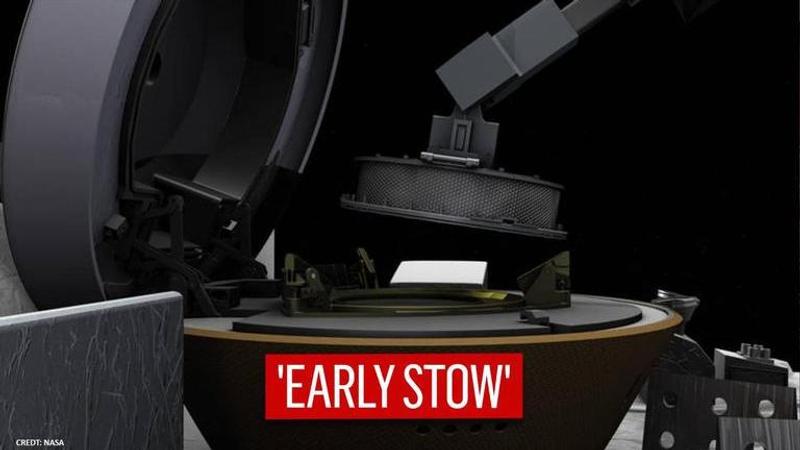Published 11:33 IST, October 27th 2020
NASA's Osiris Rex to begin 'early stow' as asteroid particles continue to leak
Robotic spacecraft Osiris-Rex on October 26 will begin a delicate operation to store particles that it scooped from asteroid Bennu, NASA said.

Robotic spacecraft Osiris-Rex on October 26 will begin a delicate operation to store particles that it scooped from asteroid Bennu, NASA which owns and controls the spacecraft said. The move comes after the agency detected a leak in the earthbound spacecraft that led to loosing of asteroid dust in the space. As per a release, the unforeseen leakage happened after the probe’s sample collecting arm’s Myler flap failed to close down completely.
(Credits: NASA)
'Collected 400 grams of fragments'
NASA has previously claimed to have collected nearly 400 grams of fragmants, which were way higher than the 60 grams needed. However, in the backdrop of the leak, scientists are now working on acceralerating the stow the collected sample in the capsule, located at the centre of the spacecraft. According to NASA, the process of stowing was scheduled from November 2 earlier had been moved to October 27.
"The abundance of material we collected from Bennu made it possible to expedite our decision to stow,” said Dante Lauretta, OSIRIS-REx principal investigator at the University of Arizona, Tucson. “The team is now working around the clock to accelerate the stowage timeline so that we can protect as much of this material as possible for a return to Earth," he added.
Unlike other spacecraft operations where OSIRIS-REx autonomously runs through an entire sequence, stowing the sample is done in stages and requires the team’s oversight and input, NASA in a statement explained. For the process, the team is required to send the preliminary commands to the spacecraft to start the stow sequence and, once OSIRIS-REx completes each step in the sequence, the spacecraft sends telemetry and images back to the team on Earth and waits for the team’s confirmation to proceed with the next step.
Credits: NASA
Updated 11:32 IST, October 27th 2020





